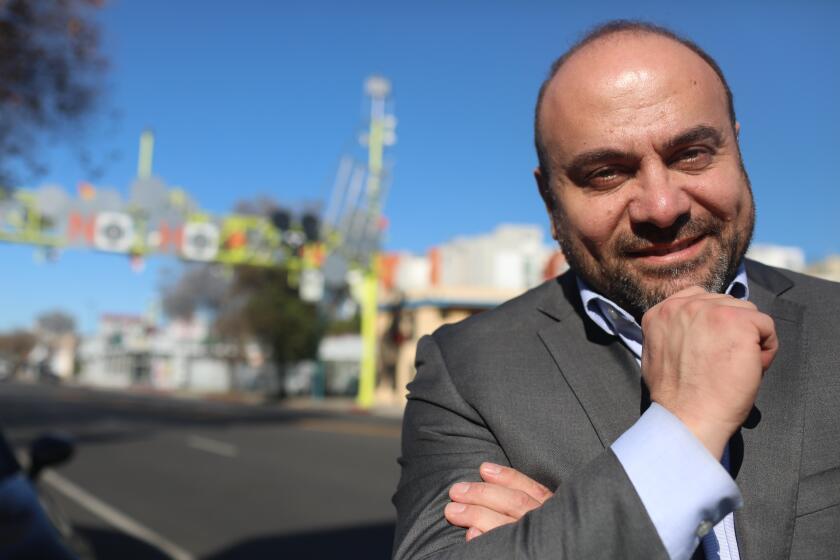Free speech, even for liars
Xavier Alvarez, a former member of the Three Valleys Municipal Water District governing board in eastern Los Angeles County, won an important victory in the Supreme Court on Thursday. But he probably won’t want to frame the leading opinion and hang it on his wall.
“Lying was his habit,” begins JusticeAnthony M. Kennedy’s opinion. “Xavier Alvarez, the respondent here, lied when he said that he played hockey for the Detroit Red Wings and that he once married a starlet from Mexico. But when he lied in announcing he held the congressional Medal of Honor, respondent ventured onto new ground; for that lie violates a federal criminal statute, the Stolen Valor Act of 2005.”
Nevertheless, despite Alvarez’s almost comic mendacity, the court overturned his conviction, ruling 6 to 3 that the Stolen Valor Act — which makes it a crime to falsely claim military honors — violated the 1st Amendment. It was the correct decision.
Congress’ justification for the Stolen Valor Act was to prevent damage to the reputation and meaning of military medals; it was inspired by legitimate solicitude for war heroes. But no one seriously believes people will think less of the Medal of Honor because someone pretends to possess one. If anything, anger over such a fraud reinforces the esteem in which the decoration is held.
And a lie like Alvarez’s has a short shelf life. (A list of actual Medal of Honor winners is only a Google search away.) As Kennedy pointed out: “The facts of this case indicate that the dynamics of free speech, of counterspeech, of refutation, can overcome the lie.” Alvarez, for instance, was ridiculed online and in the media for his lie.
Kennedy also questioned the broad sweep of the law, which, he noted, would have criminalized Alvarez’s lie not just at a public meeting but even if he made it in a “personal, whispered conversation” in his own home. What’s more, it does so entirely without regard to whether the lie was made for the purpose of material gain.
Although the court has refused to protect false statements in cases of libel and fraud, it has recognized that “some false statements are inevitable if there is to be an open and vigorous expression of views” in public and private conversation.
Unfortunately, Kennedy’s eloquent opinion was joined only by Chief Justice John G. RobertsJr.and Justices Ruth Bader Ginsburg and Sonia Sotomayor. Justices Stephen G. Breyer and Elena Kagan concurred in the result but wrote a separate, more grudging opinion that held out the possibility that Congress could enact a “more finely tailored statute” to deal with false statements about military honors. Before rushing to act on that suggestion, Congress should make sure that liars like Alvarez are actually deriving financial benefit from their phony war stories, and that the offense can’t be dealt with under existing law.
More to Read
A cure for the common opinion
Get thought-provoking perspectives with our weekly newsletter.
You may occasionally receive promotional content from the Los Angeles Times.










